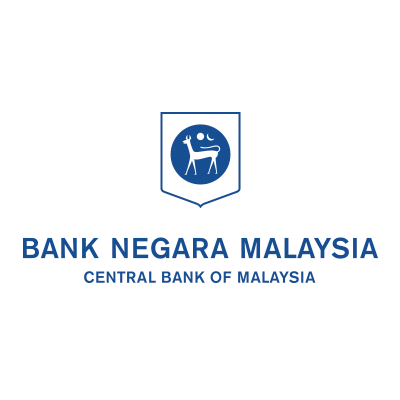About Bank Negara Malaysia
Bank Negara Malaysia (the Central Bank of Malaysia), is a statutory body which started operations on 26 January 1959. Bank Negara Malaysia is governed by the Central Bank of Malaysia Act 2009. The role of Bank Negara Malaysia is to promote monetary and financial stability. This is aimed at providing a conducive environment for the sustainable growth of the Malaysian economy.
Bank Negara Malaysia’s monetary policy stance is to maintain price stability while remaining supportive of growth. Bank Negara Malaysia is also responsible for financial system stability. This is achieved by developing a sound, resilient, progressive and diversified financial sector which serves to support the sectors of the real economy. It also plays an important function in implementing initiatives to deepen and strengthen the financial markets, including the foreign exchange market.
Bank Negara Malaysia has played a significant developmental role in developing the financial system infrastructure in advancing the financial inclusion agenda. This is to ensure all economic sectors and segments of the society have access to financial services. In addition, Bank Negara Malaysia also oversees the nation’s payment systems infrastructure which emphasize on the efficiency and security of the financial systems.
As the banker and adviser to the Government, Bank Negara Malaysia provides advice on macroeconomic policies and the management of public debt. Bank Negara Malaysia is also the sole authority in issuing the national currency and in managing the country's international reserves.
Roles and Functions
Among the major role of the Bank is the prudent conduct of monetary policy, which has seen generally low and stable inflation for decades and thereby, preserving the purchasing power of the ringgit. The Bank is also responsible for bringing about financial system stability and fostering a sound and progressive financial sector. There is now in place a well diversified, comprehensive and resilient financial sector, that is able to meet the increasingly sophisticated needs of consumers and businesses, and which has become a growth driver in the economy.
The Bank also plays a significant developmental role, including development of financial system infrastructure with major emphasis placed on building the nation's efficient and secured payment systems as well as the necessary institutions (including Securities Commission, KLSE, now known as Bursa Malaysia and Credit Guarantee Corporation) which are important towards building a comprehensive, robust and resilient financial system.
The Bank actively promotes financial inclusion, which has led to improved access to financial services for all economic sectors and segments of society, thereby supporting balanced economic growth.
Other important roles of the Bank are being a banker and adviser to the Government, playing an active role in advising on macroeconomic policies and managing the public debt. It is also the sole authority in issuing currency as well as managing the country's international reserves.
The roles of the Bank are supported by 39 departments/units covering the following seven functional areas.
Bank Negara Malaysia’s monetary policy stance is to maintain price stability while remaining supportive of growth. Bank Negara Malaysia is also responsible for financial system stability. This is achieved by developing a sound, resilient, progressive and diversified financial sector which serves to support the sectors of the real economy. It also plays an important function in implementing initiatives to deepen and strengthen the financial markets, including the foreign exchange market.
Bank Negara Malaysia has played a significant developmental role in developing the financial system infrastructure in advancing the financial inclusion agenda. This is to ensure all economic sectors and segments of the society have access to financial services. In addition, Bank Negara Malaysia also oversees the nation’s payment systems infrastructure which emphasize on the efficiency and security of the financial systems.
As the banker and adviser to the Government, Bank Negara Malaysia provides advice on macroeconomic policies and the management of public debt. Bank Negara Malaysia is also the sole authority in issuing the national currency and in managing the country's international reserves.
Roles and Functions
Among the major role of the Bank is the prudent conduct of monetary policy, which has seen generally low and stable inflation for decades and thereby, preserving the purchasing power of the ringgit. The Bank is also responsible for bringing about financial system stability and fostering a sound and progressive financial sector. There is now in place a well diversified, comprehensive and resilient financial sector, that is able to meet the increasingly sophisticated needs of consumers and businesses, and which has become a growth driver in the economy.
The Bank also plays a significant developmental role, including development of financial system infrastructure with major emphasis placed on building the nation's efficient and secured payment systems as well as the necessary institutions (including Securities Commission, KLSE, now known as Bursa Malaysia and Credit Guarantee Corporation) which are important towards building a comprehensive, robust and resilient financial system.
The Bank actively promotes financial inclusion, which has led to improved access to financial services for all economic sectors and segments of society, thereby supporting balanced economic growth.
Other important roles of the Bank are being a banker and adviser to the Government, playing an active role in advising on macroeconomic policies and managing the public debt. It is also the sole authority in issuing currency as well as managing the country's international reserves.
The roles of the Bank are supported by 39 departments/units covering the following seven functional areas.










